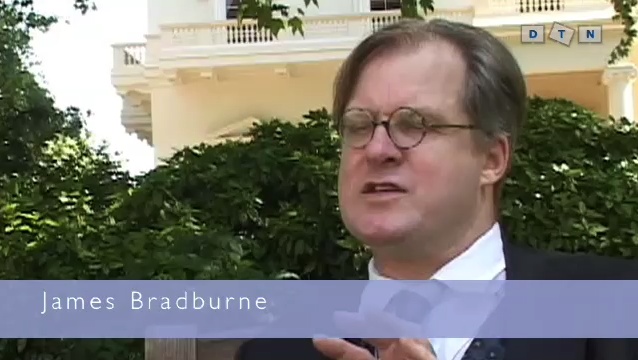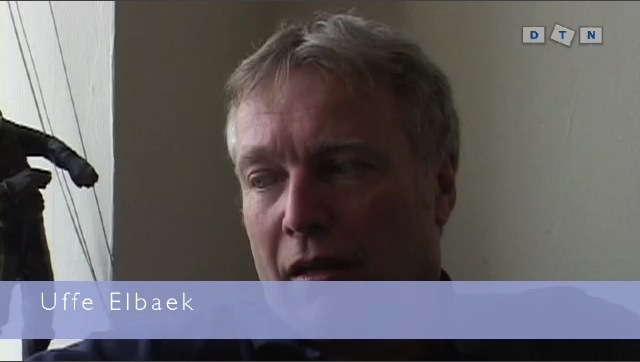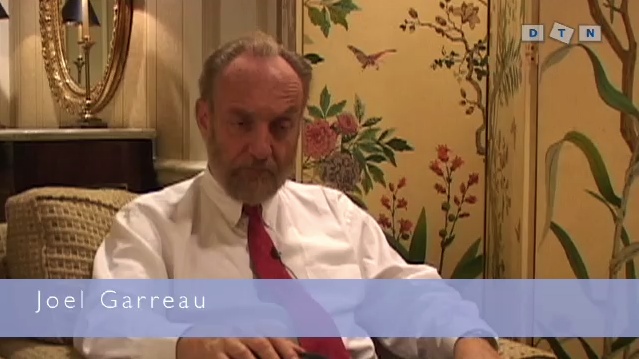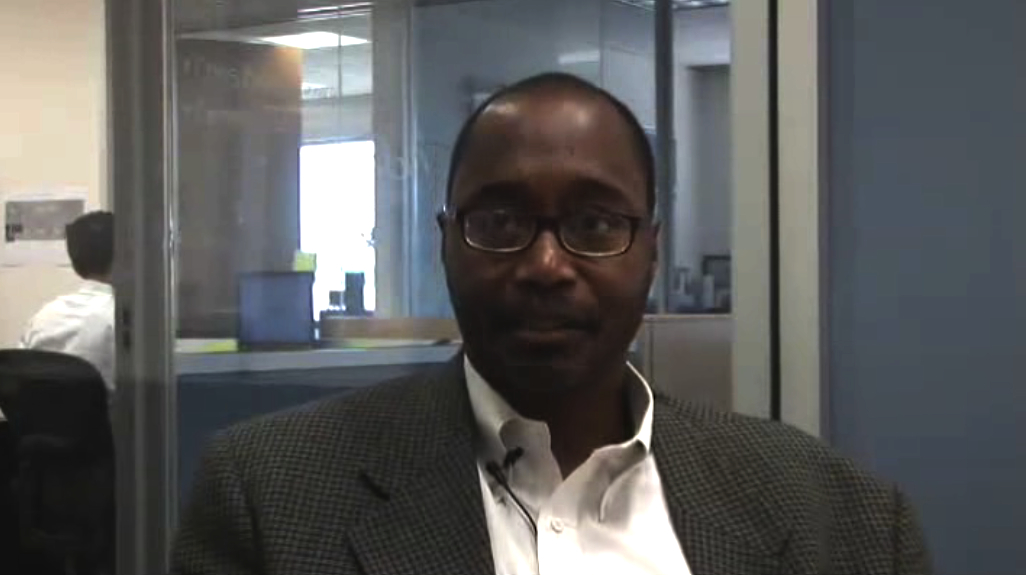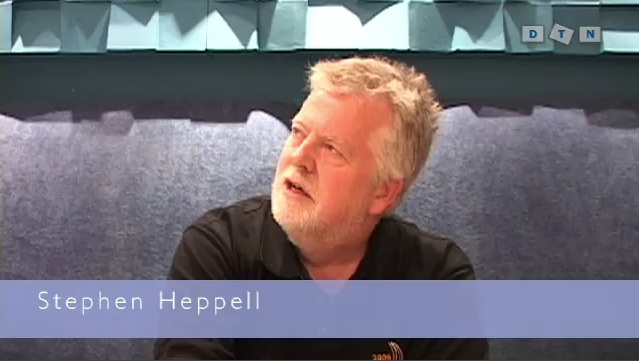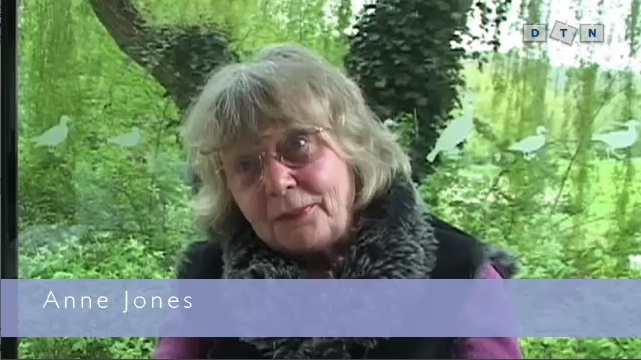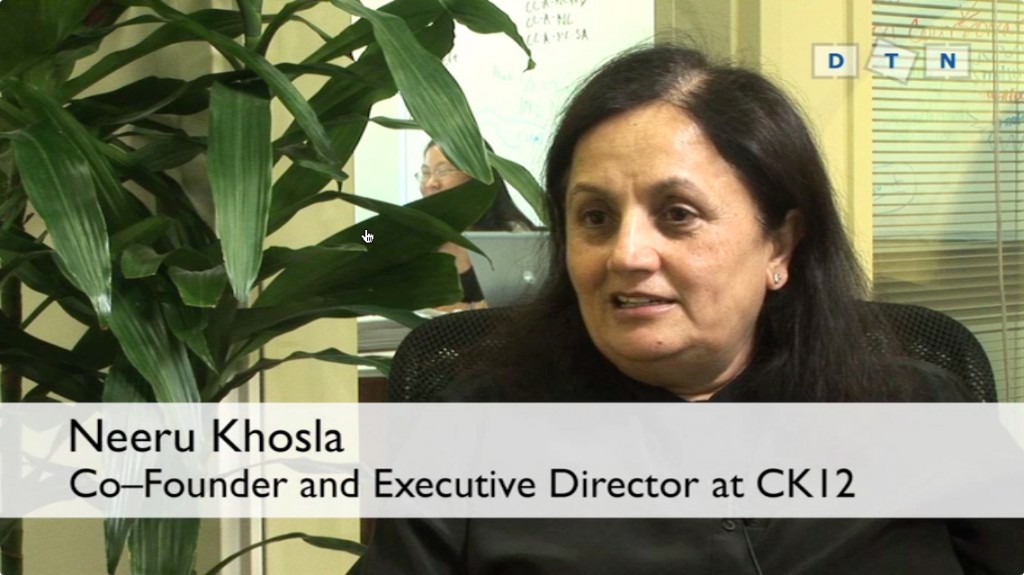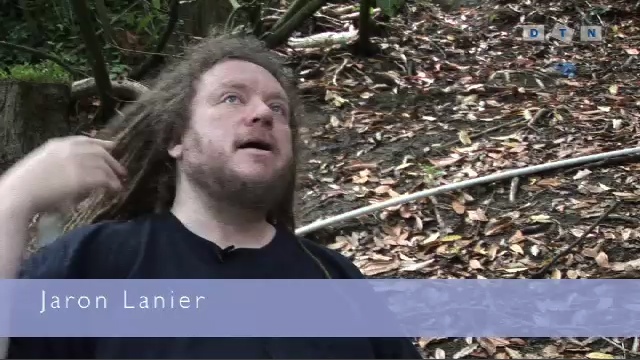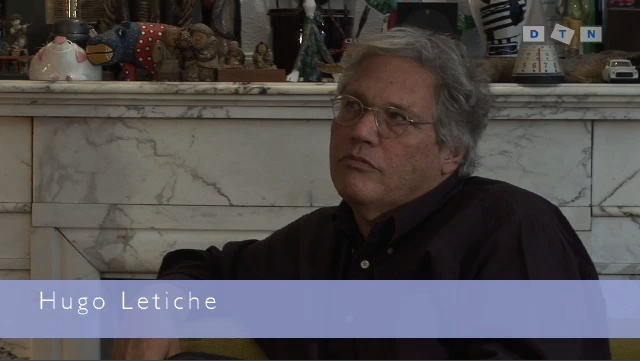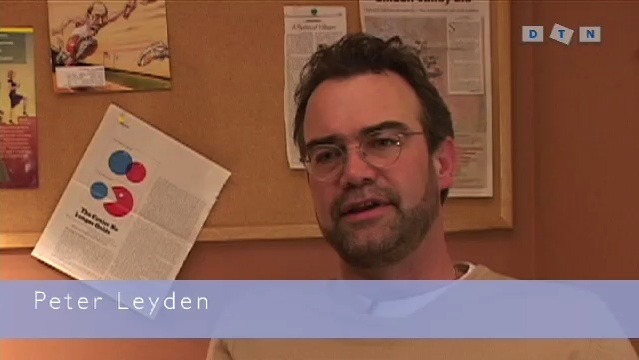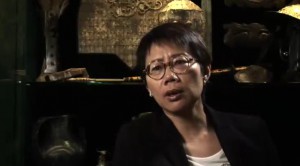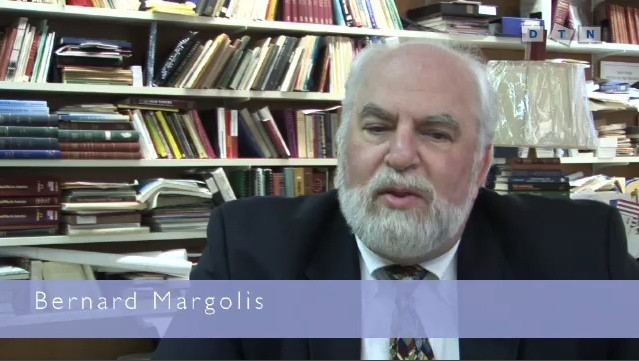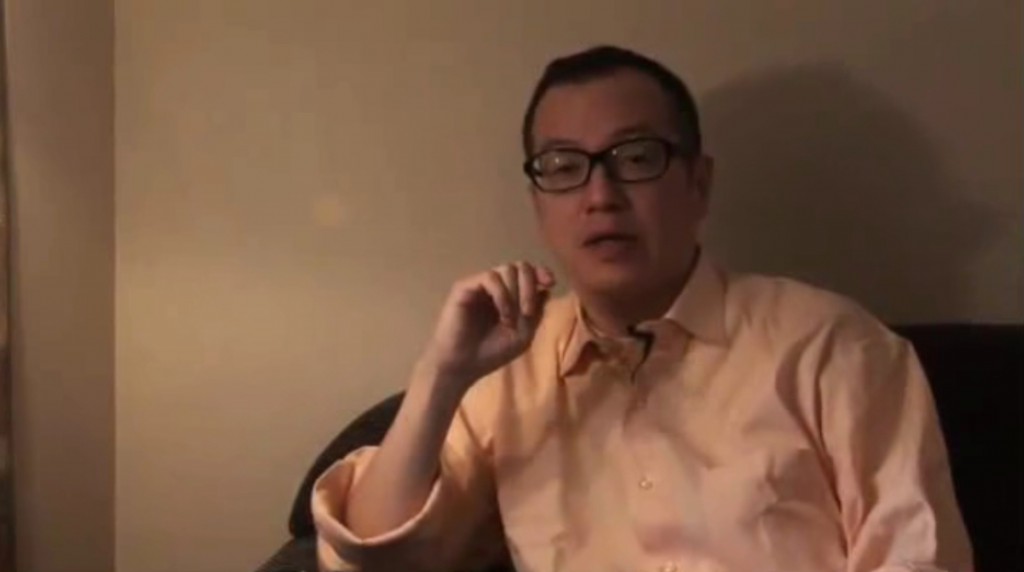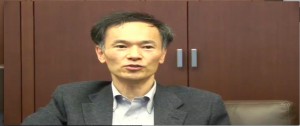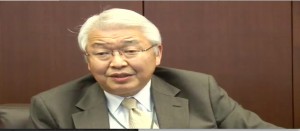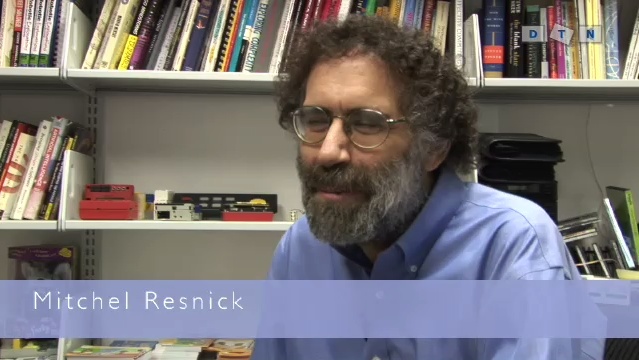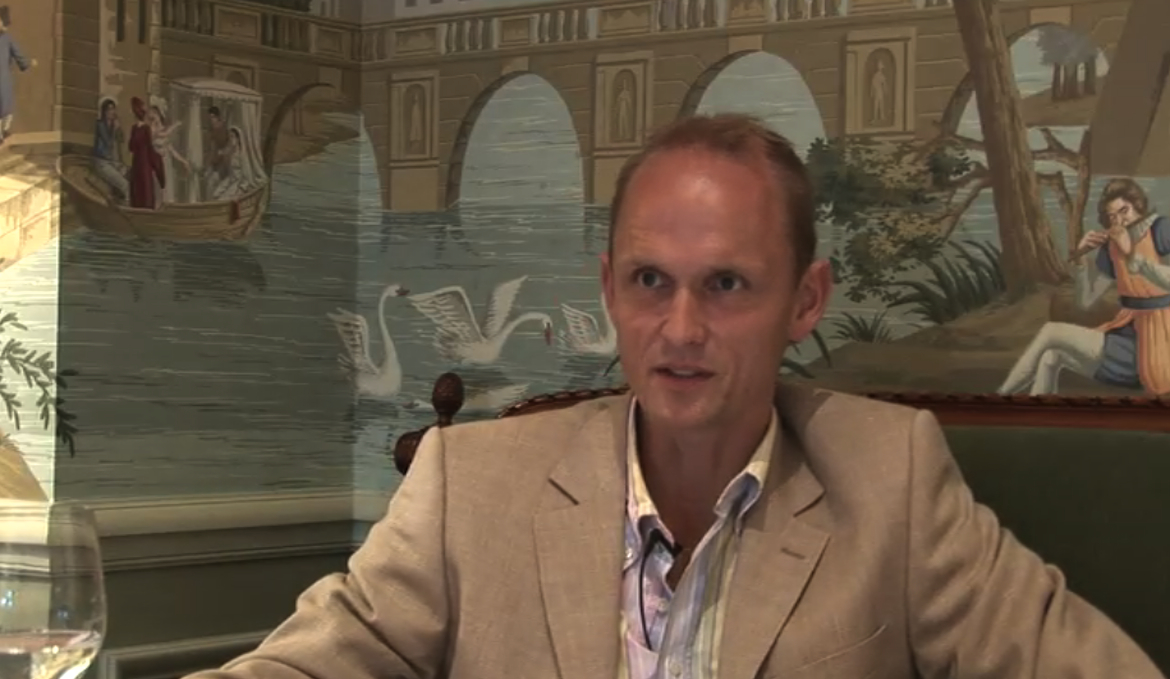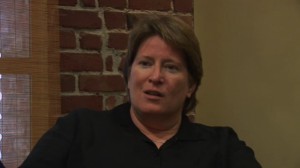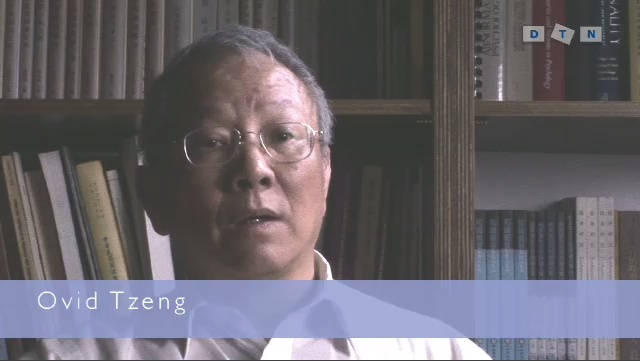Alphabetical interview list recorded from 2005 – 2008
Edith Ackermann – Professor of Developmental Psychology at MIT – Boston
Development of children’s worldview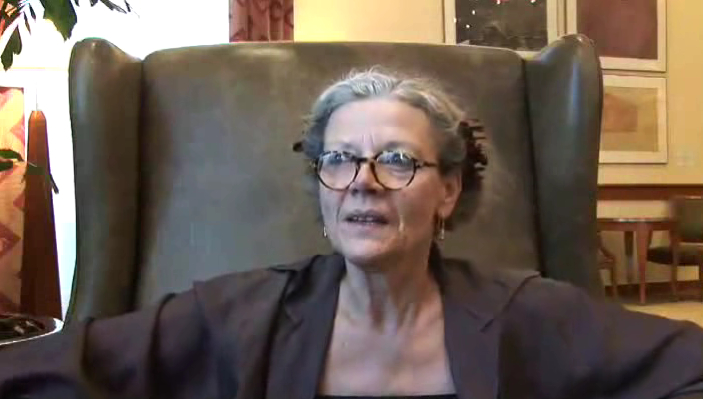
“I believe that what is going to become very important is the tagging, but in a broad sense. It’s the notion that the word, the written word, is many things. It’s not just like the written version of some, the description that comes in the instruction, if you do programming. But it also becomes a window into other worlds. So, for example, if I make a hyperlink, the word becomes a portal to another world. There will be very strong core organizing ideas about what you expect in a way in the digital world.”
______________________________________________________________________________________________________________________________________________________
James Bradburne – Director of the Next Generation Foundation – U.K.
“We are increasingly building the trust factor into the technology; we are removing it from the person.” Humans are enhanced by the technology they use. We increasingly displace intelligence, transferring it to objects. According to James Bradburne, this means that we have to learn how to deal with these objects and what they can really do. So, it is vital in education that children learn to understand what they are doing when they use technology, and to use technology to enhance their own possibilities, rather than abandoning them to the technology.
______________________________________________________________________________________________________________________________________________________
William Calvin – Neurobiologist University of Washington – Seattle U.S.A.
The value of kinesthetic learning
“It was just amazing, this whole world of kinaesthetic experience that I had missed out on by not getting into a boat and having a paddle in my hand.” William Calvin tells a story about traveling on some of the major rivers of the US. After several trips and talks with the boatman, he gained a fair amount of theoretical knowledge about steering a boat. But in the end, he realised that this theoretical knowledge was lacking substantial input.
______________________________________________________________________________________________________________________________________________________
Cathy Casserly – Senior Partner at Carnegie Foundation for Advancement of Teaching – U.S.A.
Teaching and learning in a changing world.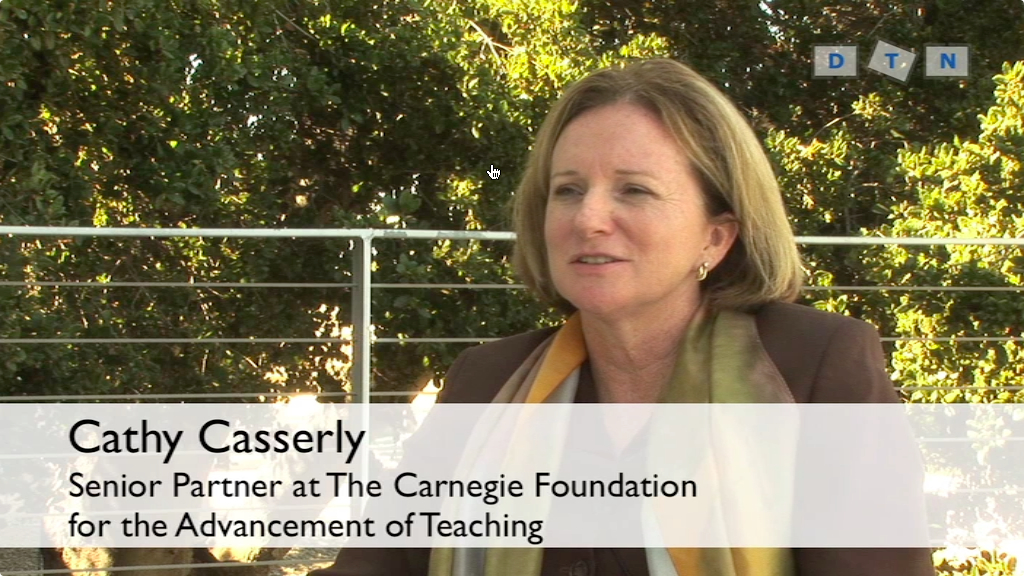
“Well, I think actually as you say, the constructs of teaching and learning are reciprocal. And we can’t really improve teaching until we really understand how students learn and how they learn well. And as the world changes with the Internet, with the Web, with technologies, I think with the information age, as we move away from the industrial age, the set of skills that students will need are going to be very, very different.”
______________________________________________________________________________________________________________________________________________________
David Cavallo – OLPC, Co-head of the MIT Media Lab’s Future of Learning Group – Boston
The importance of language for learning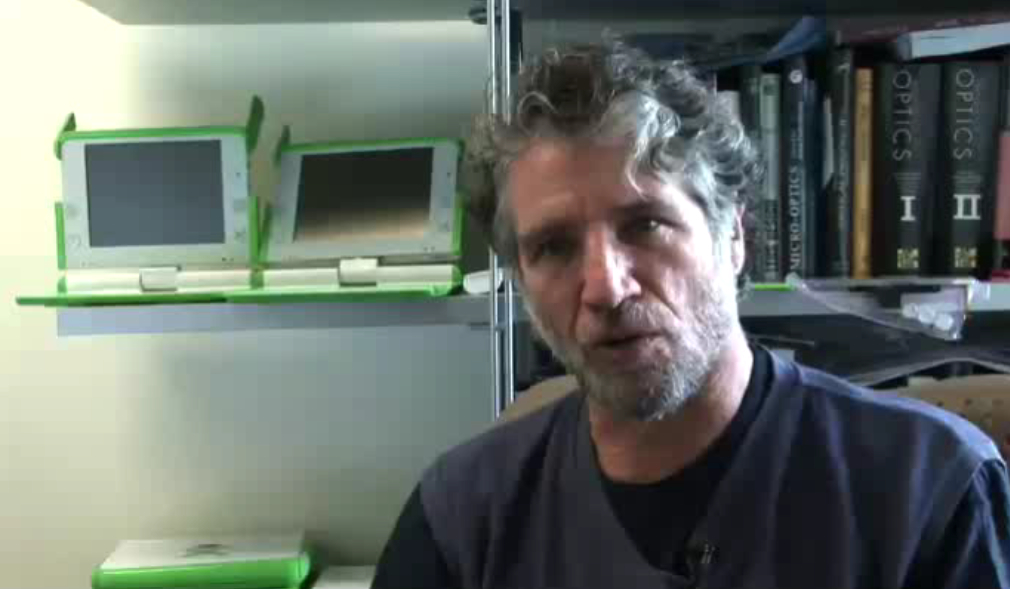
“At age 80, you’re still learning new things. And so, this kind of breakdown of thinking of still intelligence as a kind of, you have so much and it’s in a cup, and we’re born with different amounts in the cup.”
______________________________________________________________________________________________________________________________________________________
Peter Cochrane – Former CTO British Telecom – U.K.
The best people bypass education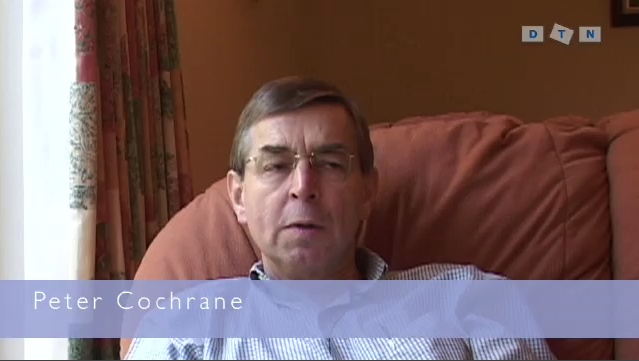
“If you suggested to someone that’s young to do a course on how to run a PC, they would laugh at you.” Young people are bypassing education, learning valuable skills in everyday life, Peter Cochrane observes. Worldwide, the best people in innovative fields got their skills from doing, not by learning them at school. Companies should take this into account when setting up their training programs.
______________________________________________________________________________________________________________________________________________________
Jim Daly – Editor in Chief of Edutopia Magazine – San Francisco
Integrated curriculum
 “Different subjects, as they are presented in education, are not so religiously separated in real life”, says James Daly. They are integrated. Thus, in order to teach children these subjects, in the context that they are used in real life, we need to integrate the curricula of different subjects. Teaching subjects in context to children also implies teaching them to optimise the use of everyday tools, like visualisations and the Internet, for the context in which these are used.
“Different subjects, as they are presented in education, are not so religiously separated in real life”, says James Daly. They are integrated. Thus, in order to teach children these subjects, in the context that they are used in real life, we need to integrate the curricula of different subjects. Teaching subjects in context to children also implies teaching them to optimise the use of everyday tools, like visualisations and the Internet, for the context in which these are used.
______________________________________________________________________________________________________________________________________________________
Uffe Elbaek – Founder/Principal of the KaosPilots – Denmark
“Young people are not loyal to the company, like their parents were; but they are very loyal towards the team they are working in and the project they are dealing with.” According to Uffe Elbaek, young people are looking for interesting projects to work on, much more than for an interesting employer. This completely changes the way that companies should deal with young talent and how they should judge their behavior.
______________________________________________________________________________________________________________________________________________________
Douglas Engelbart – Personal Computing Pioneer – San Francisco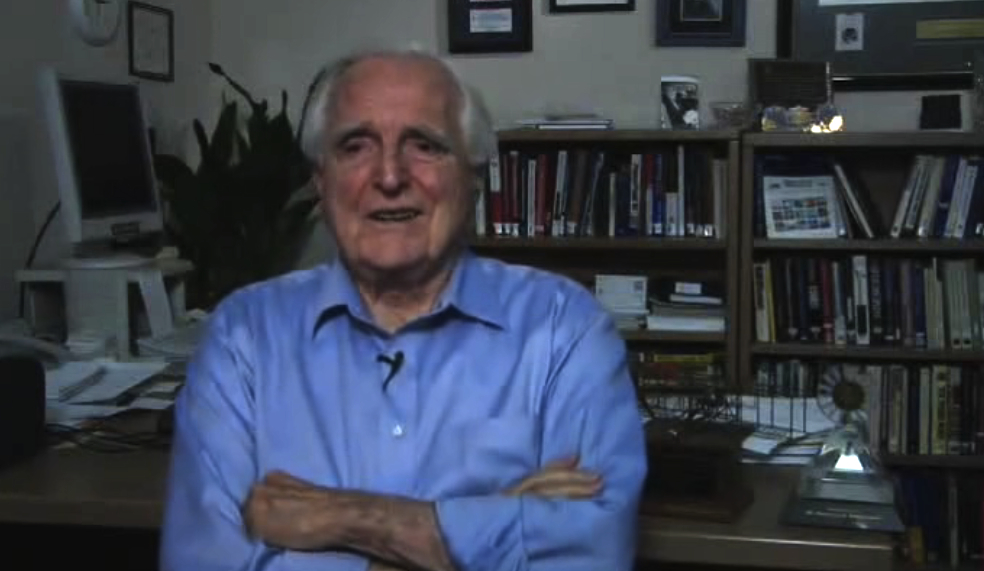
The importance of collective understanding.
The idea of connecting people through computers.
Books will become obsolete.
The ability to learn things we don’t understand; getting the idea.
“Perceptions are important, but it’s probably not as important as the actual collective understanding. It’d be really interesting to get dialogue going about this kind of thing. Everybody may not agree or have the same kind of understanding about how some process works, but I’m sure that the way your brain evolved didn’t have everything synchronized, either.”
______________________________________________________________________________________________________________________________________________________
Arie de Geus – Former Director of Planning Unit Shell – The Netherlands
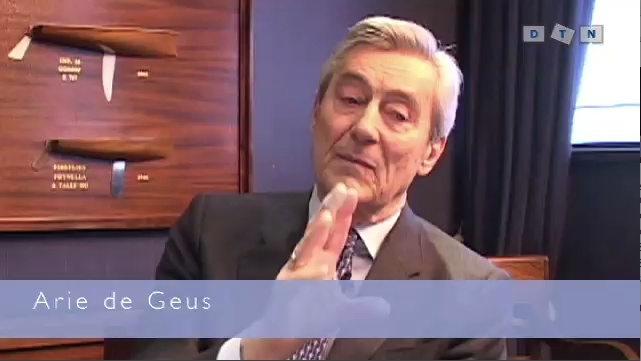 Learning as a prerequisite for change
Learning as a prerequisite for change
“The idea of top-management was, why were you top-management? Because you were so bloody brilliant!” Arie de Geus talks about a moment of transition in Shell’s top-management. At the time it was assumed that, as top-managers, they were already knowledgeable and experienced and no longer needed to learn. Learning was something that others did. Faced with a completely new situation, however, it could only be concluded that top-management was in a learning situation.
______________________________________________________________________________________________________________________________________________________
Joel Garreau – Journalist and author of ‘Edge City’ – U.S.A.
“All cities, throughout all of human history, have always been shaped by whatever the state-of-the-art transportation device was at the time.” Joel Garreau says that, throughout history, cities developed according to the dominant transportation system. He supports his view with a description of different cities and their transportation systems at the time when the cities became important. Next to the jet liner and the automobile, the transportation system today includes the networked computer. It is this combination that shapes the “edge cities”.
______________________________________________________________________________________________________________________________________________________
Obie Greenberg – YouTube Strategic Educational Partnerships – San Francisco
Open access to university courses through video and use of video conferencing in education.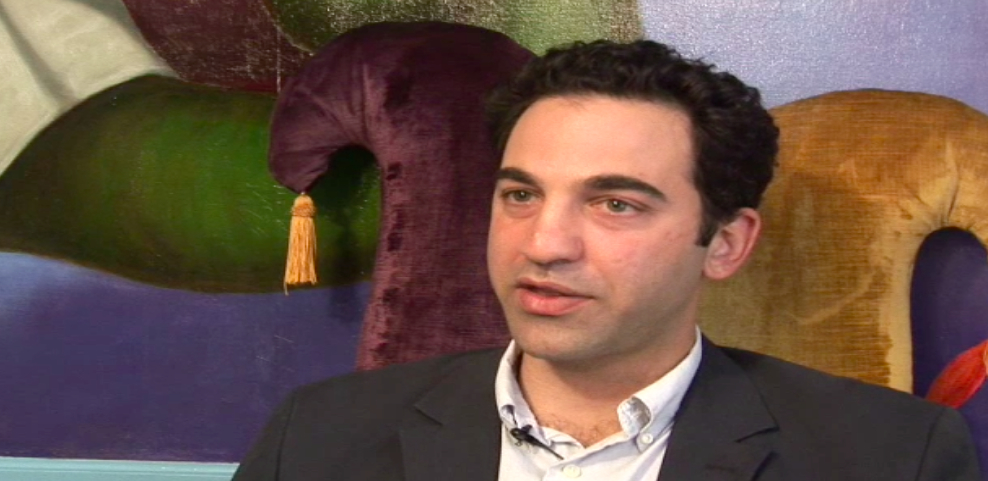
“What happens if there was a Facebook type of application, where there is a note taker in class. So, in every class, I’m going to take notes, where everyone in class took notes, but they all added them to this network. And everyone is able to read each other’s notes and comment on each other’s notes. Eventually, you probably would have a couple of note takers, who would be deemed the best note takers, right?”
______________________________________________________________________________________________________________________________________________________
Katarzyna Hall – Minister of National Education – Poland
Education: shift to local responsibility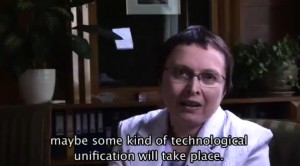
“I want to give education to the local authorities.” Katarzyna Hall knows from experience that it is easier for local authorities, than it is for national authorities, to sustain policies to improve education. This is simply because local authorities are more often re-elected, allowing policies to continue. To de-politicise education, Hall wants to move the control of education from the national government to municipalities.
______________________________________________________________________________________________________________________________________________________
Gerald Harris – Senior Consultant with Global Business Network – San Francisco
Performance driven education as a result of globalisation.
The limits to globalising education cultural differences.
Student centred learning room for different learning styles.
Education as a way to get a job or to prepare for live as a whole.
______________________________________________________________________________________________________________________________________________________
Stephen Heppell – Former Head of Ultralab – U.K.
“People don’t think hard enough how the 21st century is different from the 20th century.” Stephen Heppell points out that what was successful in the 20th century were “big things that did things for people”. In the 21st century, the big success stories are things that make people help each other. This means that people must move out of a passive role and become much more of an active player. This has an impact on education and learning and what they should entail.
______________________________________________________________________________________________________________________________________________________
Shinnosuke Honjo – Ex-Vice President and Founder Rakuten – Tokyo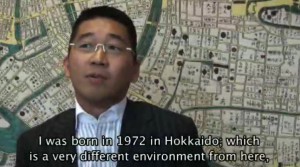
(Interview in Japanese with English subtitles)
Reform of Japanese education system
Technology and children
Apprenticeship and education
Future of Japanese education
“I guess the main factor which is making the e-learning material less attractive is its incapability to provide a sense of togetherness with other individuals. Because the e-learning isn’t designed for entertainment, you need peers. I have studied from correspondent study materials, but the only course I succeeded in learning is from a text based mailing list, consisting of 20 peers with one teacher, with the subject on the editing method. The typical e-learning means a website with visual and audio effects, but what is more important is the presence of peers who share the joy of learning. The developer of e-learning program cannot escape from their duties of making better or more entertaining audio visual effects, but that’s not actually what is needed for the learners.”
______________________________________________________________________________________________________________________________________________________
Anne Jones – Founder/ Managing Director of Lifelong Learning Systems – U.K.
“You don’t really learn unless you have decided you want to learn it.” Self-managed learning, according to Anne Jones, is the only way to really learn. So, in education, students should be motivated to learn for themselves. While that sounds easy, it is, in reality, very hard to do. Jones shares some examples from her own experience as school director.
______________________________________________________________________________________________________________________________________________________
Brewster Kahle – Director of the Internet Archive – U.S.A.
Knowledge limitations of the Internet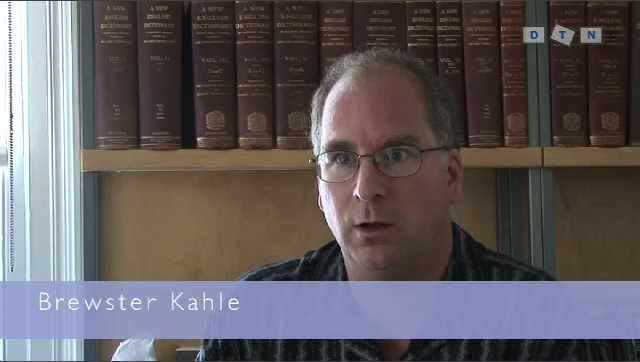
“Most of the stuff, that is on the Internet, has been written in the last five years.” Brewster Kahle is worried about the content of the Internet. While it is one of our biggest resources for finding information, a lot is missing. There is not a lot of content to be found that was created more than five or ten years ago. What we can find, instead, are resources that have been created for the Internet. As such, we find short texts rather than entire books.
Loss of the 20th century
“We might loose the 20th century.” Brewster Kahle explains, that due to copyright laws, the 20th century is mostly taken from our sight. As long as the content is in print, it is commercially viable; so, someone will bring it to us. But out-of-print material is not only very hard to find, it is nearly impossible to make available in any substantial way. Copyright laws withhold their availability and publishers don’t care enough to do anything with it.
______________________________________________________________________________________________________________________________________________________
Martha Kanter – Under Secretary of Education USA – Washington
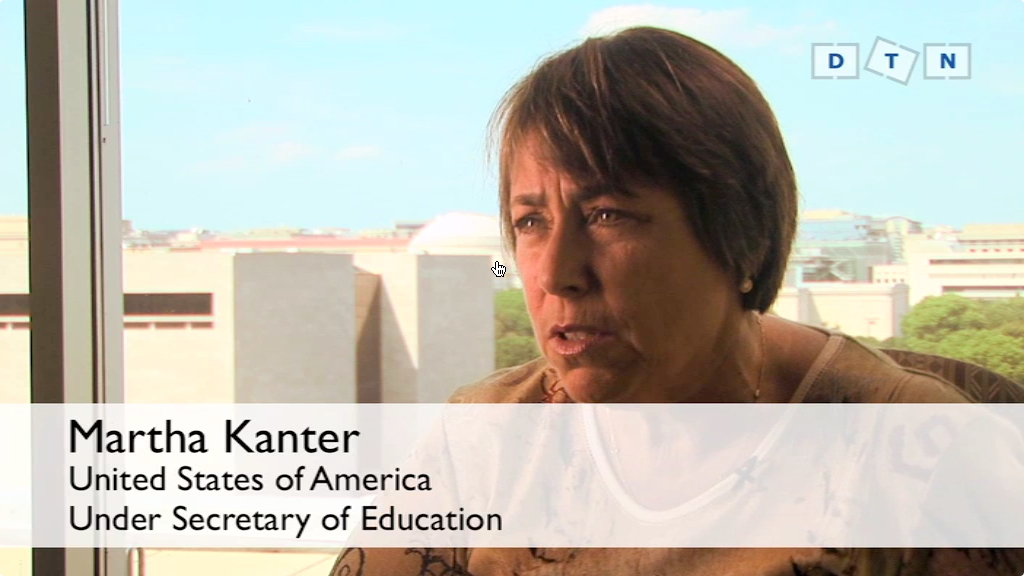
Why the Education system is broken.
” We’ve put teachers and families into very difficult circumstances in our institutions, and I think we need to step back and say: How is the content shaping how they think about their work and how we actually deliver those set of materials and that content to every student?”
______________________________________________________________________________________________________________________________________________________
Alan Kay – Computing Pioneer – San Francisco
An anthropological view of business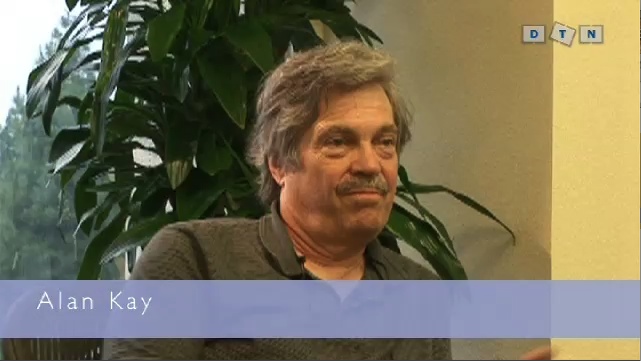
“Scientists and engineers create wealth; everyone else just moves it around.” Alan Kay challenges us to look at business in a different way. According to him, if anthropologists looked at businesses, they would find something that resembles a hunter-gatherer society. Businesses are large communication systems built to deal with the gains made by scientists and engineers. From this perspective, funding research is crucial for a sustainable system.
We live in a pop culture
“That is how the Microsoft operating system got in there; nobody complained.” With the development of the browser as example, Alan Kay observes that software development has not even caught up with the possibilities that existed in working demos in the seventies. The sheer volume of bad material, he says, makes us blind to the endless possibilities that the computer has to offer.
______________________________________________________________________________________________________________________________________________________
Neeru Koshla – Co-Founder and Executive Director at CK12
From Textbook to Flexbook
“What it does is it kind of gives the control back to the teacher. It’s not like we are telling the teacher. I’ve seen over the last some years that constantly, teachers are being told well, you don’t know how to do this. Let me show you how to do it. All the time, teachers are told that. And they’re fed up. And as things come and go, there have been so many movements, if you think back even 10 years, project-based education, all that other kind of collaborative, all these things keep coming and going. And teachers are supposed to implement it and they come and they go before they even have a chance to be good at it.”
______________________________________________________________________________________________________________________________________________________
Yogesh Kulkarni – Executive Director Vigyan Ashram – India
“Work is a medium of education. We call it a natural system of learning.” Yogesh Kulkarni argues that many of the vital skills we use in everyday life, such as our native language which we learned from doing, not from schooling. This learning method has proven its effectiveness through generations of use. At the Vigyan Ashram, a learning community in rural India, Kulkarni is trying to find ways to bring this natural system of learning into the regular school system. At his Ashram, students acquire skills and theoretical knowledge, such as math and sciences, through work. In this, work is the medium for learning, not the aim of education.
______________________________________________________________________________________________________________________________________________________
Jaron Lanier – Computer Scientist – U.S.A.
“People can flip into a collective mode when they do user generated content, and when you have a sense of a collective reality, you use the sense of individual development in learning and so, in a sense, you undo the purpose of education.” An early promoter of user generated content, Jaron Lanier finds himself in an odd position, being one of the most severe critics of its results today. One of his worries with Wikipedia is that anonymity shields people and can bring out the worst in them. Where as known authors can be challenged, a volume of knowledge that is created by ‘everyone’ presents a whole new epistemology, a base of knowledge that is hard to challenge.
______________________________________________________________________________________________________________________________________________________
Timo Lankinen – General Director Department of Education Finland – Helsinki
The success of Finnish education lays with the teachers.
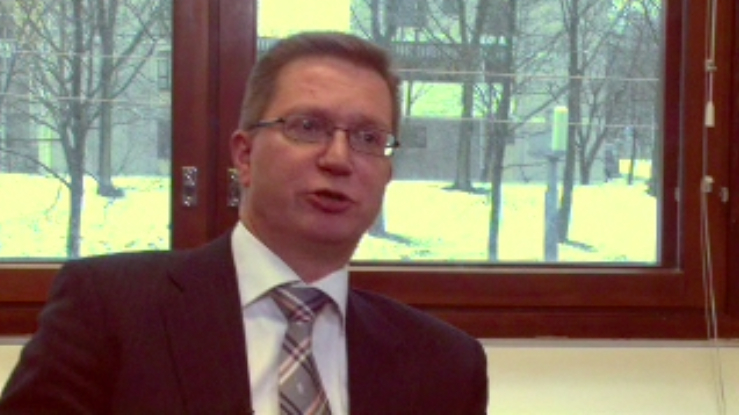 “One could see that there could be more marketisation, in a way also in Finnish school world, in a way that individual companies could sponsor more different kinds of things.”
“One could see that there could be more marketisation, in a way also in Finnish school world, in a way that individual companies could sponsor more different kinds of things.”
“I see that lifelong learning is giving many, many possibilities to people, if there are enough of that kind of capacity building in societies, where actually, labour markets and employers, governments give right kinds of incentives for that, and also, make that kind of capacity building, where, actually, adults in working life actually can do that kind of continuous learning.”
______________________________________________________________________________________________________________________________________________________
Hugo Letiche – Professor, University of Humanistics – The Netherlands
“The problem in the system [of education] has enormously to do with the training and further education of teachers.” In Hugo Letiche’s opinion, the education system in the Netherlands needs “a deep rethink”. You should not let bureaucrats run the education system; but the problem in the Netherlands is that teachers are in no position to take a bigger role in education. They simply never learned the skills.
______________________________________________________________________________________________________________________________________________________
Peter Leyden – Co-Founder Next Agenda, Former Manageing Editor Wired – San Francisco U.S.A.
“The Millennials will be the economy in the next twenty years.” Because there are so many of them, the baby boomers have dominated western society for a long time, explains Peter Leyden. In the seventies, youth culture dominated because the boomers were young. Today the boomers still dominate society, but soon their children will take over. Millenials are nearly as big a generation as the boomers in numbers. Business will be ill-served by not taking them and their differences from boomers into account.
______________________________________________________________________________________________________________________________________________________
Christine Loh – Founder and CEO of Civic Exchange – Hong Kong
Leaders should make informed decisions.
Paying for what we do not use.
Pay for efficiency, pay for less waste.
Pay for outcome, not consumerism.
“We don’t need business travel because technology allows us to have virtual meetings”
______________________________________________________________________________________________________________________________________________________
Bernard Margolis – President of The Boston Public Library – Boston
“Textbooks, by their very nature, have to change,” says Bernard Margolis. This does not go well with a static medium, such as a book. Interactive media, like the Internet, are much more suitable for the fluid content that is typical for textbooks. It won’t take long, says Margolis, before textbooks disappear. It is a question of when, at what juncture, the publishers see the economics. The first signs are already there.
______________________________________________________________________________________________________________________________________________________
Masu Masuyama – Manga Writer/ Content Producer – Tokyo
Using narrative elements to engage people.
Brain Training, defining a new genre of educational elements in games.
Connection between interface and user activity
The role of school and video arcade should be exchanged
“The situation in schools, they are basically saying they only have textbooks and a traditional way of teaching. Well of course, they have class PC, but it’s only how to use Windows, how to use Word. I did that research of how we can use the video games to education, the research nine years ago.”
______________________________________________________________________________________________________________________________________________________
Jerry Michalski – Former Managing Editor, Release 1.0 – U.S.A.
“Everything you need to know is already inside all of your employees’ heads. They just can’t express it.” According to Jerry Michalski, people in an organization often know a lot more than it would appear. The way to get this out is not by directly asking them to answer a question, but by giving them the opportunity to play with it for a while and trusting them to come up with real solutions for a problem; and connecting that with action.
______________________________________________________________________________________________________________________________________________________
Tetsuya Mizuguchi – Chief Creative Officer, Q Entertainment – Tokyo Japan
“In making the game, Ninety-Nine Nights, I was inspired by the different viewpoints in the reporting of 9/11.” Tetsuya Mizuguchi talks about an educational element in a mainstream computer game. Inspired by the different media perspectives of different countries on the 9/11 attacks, Mizuguchi made a game that shifts perspectives, showing that how we see things depends on our perspective and the way that the situation is described to us.
______________________________________________________________________________________________________________________________________________________
Masato Murakami & Yoriaki Kanada – Deputy President Sony Disk & Digital Solutions & General Manager Technology Planning Department Sony – Tokyo
Edutainment doesn’t work after
the age of seven.
The process should make learning enjoyable.
A change in definition of education.
______________________________________________________________________________________________________________________________________________________
Kai Peters – CEO Ashridge Business School – U.K.
Focus on a wider variety of skills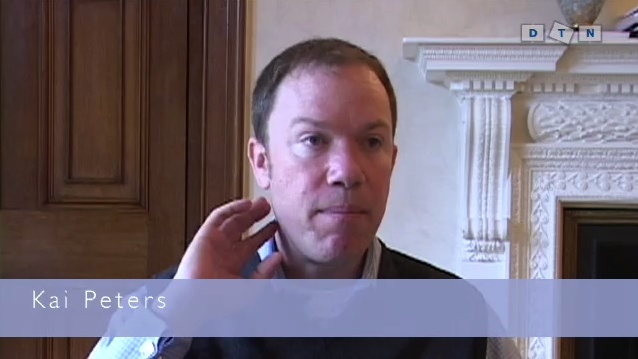
“We are not all nuclear physicists in business. Some of business is just getting on with things.” Kai Peters comments on the tendency of business schools to try and get only the best performing students. In fact, much of what is valued in business and needs to be done has little connection with what is valued in students.
______________________________________________________________________________________________________________________________________________________
Mitchel Resnick – Director of Lifelong Kindergarten Group at MIT – U.S.A.
“As I have looked around over the years to try to find models and sources of inspiration about the learning process, I’ve been especially inspired by the way that children learn in kindergarten.” Resinick finds kindergarten to be a very good model for learning creative processes, and believes we should look at ways to expand the model to learning at all ages. But, the tools that children use in kindergarten are too limited to achieve this, as is mainstream education technology. Where mainstream education technology re-enforces the traditional transmission approach to learning, Resnick and his group at MIT try to develop technologies that enable learning as it is done in kindergarten for all ages.
______________________________________________________________________________________________________________________________________________________
Tim O’Reilly – Founder and CEO of O’Reilly Media – U.S.A.
Harnessing collective intelligence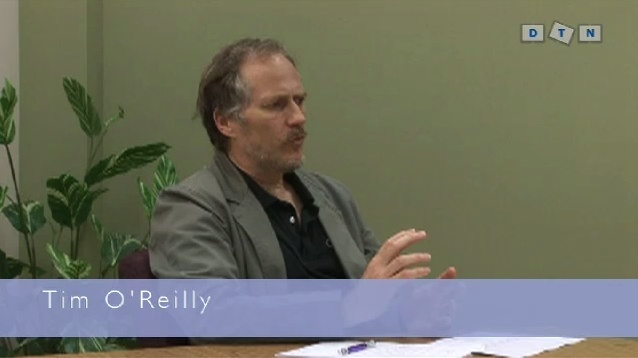
“If you think about Google’s breakthrough in search, they stopped just searching documents and started looking at what people did to the documents.” Tim O’Reilly observes that the companies which easily survived the dot-com bust are those dedicated to harnessing collective intelligence. They were companies that used peoples’ combined activities on-line to inform the activities of the software and how it could help the next user. While the information was the same, different companies dealt with it in different ways.
______________________________________________________________________________________________________________________________________________________
Eric Rodenbeck – Founder and Creative Director of Stamen Design – U.S.A.
Learning in virtual environments
“The interface is not the issue any more.” Is visualisation the future of learning? Eric Rodenbeck doesn’t think so. Visualisation and interfaces are too much an integrated part of dealing with technologies. Therefore, they form the background against which much of the learning takes place, but are unnoticed as a separate entity in the process. Visualisation can play an important role in learning, since it can change information from a set of entities into something that flows.
______________________________________________________________________________________________________________________________________________________
Johan Roos – Director of Imagination Lab Foundation – Geneve
Founded Imagination Lab Foundation a Swiss-based, independent and non-profit research foundation. Its purpose is to support scholarship that complements traditional management and organization theories with ideas grounded in the arts and sciences, especially those of imagination and play.
______________________________________________________________________________________________________________________________________________________
Eiji Sato – Sushi Oykata (Master of masters) – Tokyo
“If you have done something wrong, the master tells you that the result is not good. He doesn’t explain the reason.” Eiji Sato relates his own experience as master and as apprentice to illustrate how learning works in this system. Explanation is not provided, and apprentices must uncover for themselves why something is wrong. Also, there is no rehearsal, no practice or simulation. There is only the real activity in the working environment where every action has real results.
______________________________________________________________________________________________________________________________________________________
Andreas Schleicher – Head of Analysis at OECD Education – France
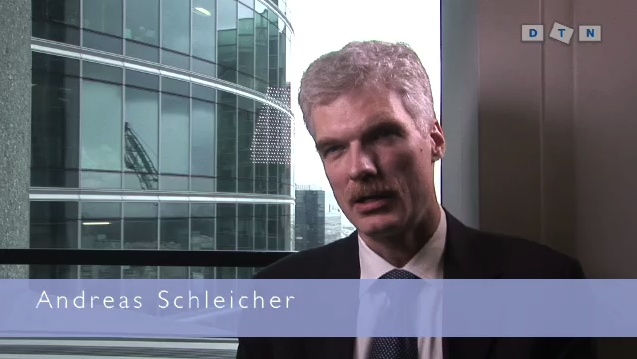 Change and transformation are possible in education
Change and transformation are possible in education
Learning and change in education systems. ”Schools are about learning, but they don’t really learn themselves”. Andreas Schleicher observes that school systems tend to be resistant to change. Everyone recognises the success of education in countries like Finland, but if it comes to following the example, there is a lot of reluctance. On the other hand, some remarkable examples show that real change is possible in education.
______________________________________________________________________________________________________________________________________________________
Jeff Shelstad – founder and CEO of Flatworld Knowledge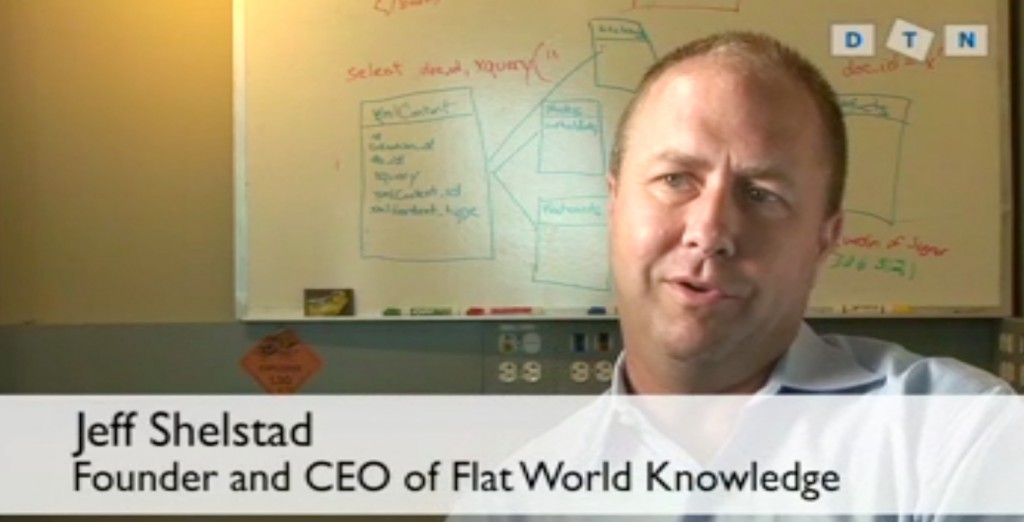
Input from Users.
“We literally spent six plus months debating what this business was going to be. And certainly started out way more disruptive or innovative or, whatever the word is, different the first iterations than perhaps the textbook business we ended up building.”
______________________________________________________________________________________________________________________________________________________
Mike Smith – Former Under Secretary of Education USA – Washington
 Open Education Resources (OER)
Open Education Resources (OER)
“2001 was the year that MIT opened up its 1800 courses on the web for free, including the tapes, lectures, material used for courses. Many government around the world treat their materials as open domain. The value of content is getting close to zero, but companies add services around the materials.”
______________________________________________________________________________________________________________________________________________________
Chris Shipley – Co-founder and Chairman Guidewire Group – San Francisco
The persistence of the teacher as authority.
Confusion of respect and authority in the classroom.
The job of the teacher.
Differentiating teachers roles.
Educational transformation trough the students.
Back to the future mixed aged learning.
Teaching frameworks for finding possible answers.
______________________________________________________________________________________________________________________________________________________
Roger Standaert – Director of Educational Development for Flanders – Belgium
Motivation and content in education
“The fundamental problem in learning is the learner’s motivation,” says Roger Standaert. According to him, technological means will not fundamentally change learning because some students simply do not want to learn. And technology will not help teachers in any new way to motivate students. However, technology can make learning more of an individual exercise to the extent that subjects are structured in a systematic and logical way. With the help of technology, students will be able to go through the material, step by step, at their own pace.
______________________________________________________________________________________________________________________________________________________
John Taylor Gatto – Former School Teacher and Writer of ‘Dumbing Us Down’ – U.S.A.
Top league curriculum in ghetto schools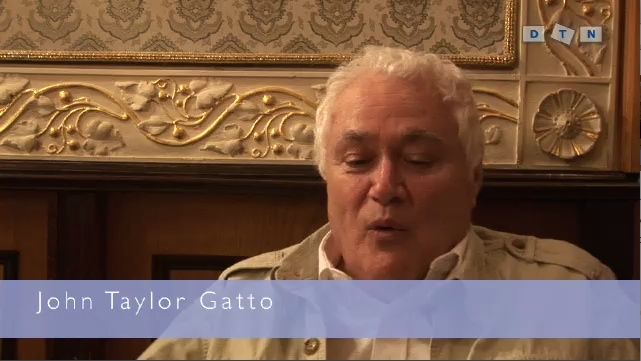
“Once you are aware of how the [education] system works, it is pathetically easy to step out of the conveyor belt.” John Taylor Gatto is convinced that the current school system in the U.S., based in the drill exercises of the Prussian army, is dumbing down the non-elite. School children in the slums do not learn crucial skills – such as social interaction skills – and develop confidence as they would in elite schools. At the same time, it is easy to copy the curriculum of top league schools in the slums. Gatto explains this with an example from his own experience as a teacher.
______________________________________________________________________________________________________________________________________________________
Ovid Tzeng – Former Minister of Education of Taiwan and Neuropsychologist – Taipei, Taiwan
“Learning is really about examination in Taiwan. Over the last few years, Taiwan has been moving away from this kind of teaching attitude.” As Minister of Education, Ovid Tzeng has been at the heart of educational reform in Taiwan. In the cultural climate of Asia, it is hard to get people to let go of the emphasis on examinations and, instead, focus on learning. But with the combined effort of those who believed in reform, the situation has changed significantly over the last years.
______________________________________________________________________________________________________________________________________________________
John Thackara – Director of Doors of Perception – U.K.
Are we prepared to make real changes?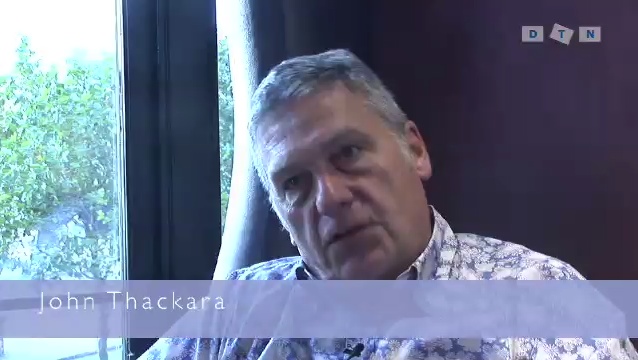
“We are in a period of low hanging fruit [in sustainability] where you can make some changes and where you can make things ten, twenty, thirty percent better without undue effort.” John Thackara raises the question of what will happen if the easy changes, related to the environment, have been effected, and changes with much higher costs are then necessary.
______________________________________________________________________________________________________________________________________________________
Jeff Ubois – Digital Archivist – San Francisco
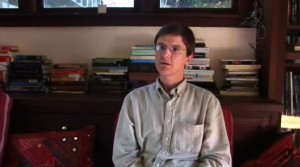
Commercial and public institutions collaborating to digitise cultural materials.
How collaboration can go, wrong loosing all control.
Tension between openness and commercial stakes.
Copyright restrictions in keeping existing educational material available.
“All kinds of educational uses for this material if it were available. So, how available was it? The point about this is that all this material exists in different pools of content that are governed by different rules. So, you have public statements by the Vice President. That’s treated in one way.”
______________________________________________________________________________________________________________________________________________________
Riitta Vanska – Manager E-learning Nokia – Finland
Core knowledge is found in the field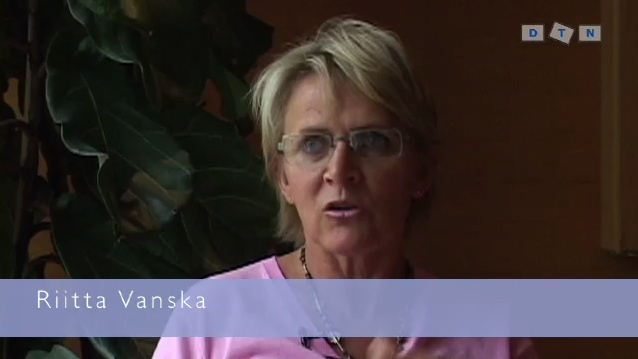
“I don’t see any difference between content that is delivered to me for information purposes or content that is delivered to me for learning purposes.” Riitta Vanska wants to bridge the gap between learning and other work-related activities in organizations. Learning should not be a separate activity but part of everyday, working life. For example, the principal knowledge for engineers can be found in the field, not among learning guru’s.
______________________________________________________________________________________________________________________________________________________


